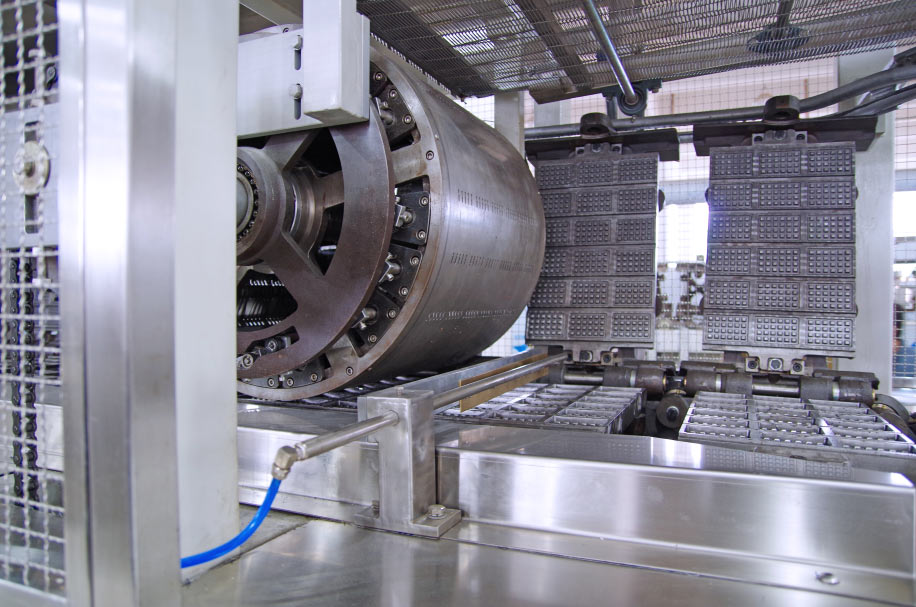Stainless steel is the abbreviation of stainless acid-resistant steel and belongs to metal materials. Stainless steel has the characteristics of being resistant to air, steam, water and other weak corrosive media. It is widely used in the food equipment manufacturing industry, such as vegetable machinery, baking equipment, pastry machinery, meat machinery, filling equipment, pasta machinery and so on. Since many food processing equipment require direct or indirect contact with food, stainless steel food equipment can avoid the influence of weak corrosive media and ensure food production is safe and hygienic.
It is undeniable that most people will think that stainless steel will not rust. In fact, stainless steel will rust. According to a mechanic, stainless steel is mainly resistant to weak corrosive media such as air, steam, water, etc., while chemically resistant media (acid, alkali, salt, etc.) are corrosive to acid-resistant steel. Obviously, if the stainless steel is placed in a chemically resistant medium for a long time, it will inevitably destroy the chromium-rich oxide film (passivation film) on the surface, thereby accelerating the "rusting" speed of the stainless steel.
A great foreign philosopher has proposed materialist dialectics, and it is necessary to look at the problem from a connected point of view. Everything in the world is in the midst of change and development, and there is also a certain connection between things and things. Under certain conditions, they will transform each other. Of course, the same is true for stainless steel. Under normal circumstances, stainless steel materials do not rust, but external conditions change, there will be "rust".
We know that stainless steel has the ability to resist atmospheric oxidation and is corrosion resistant. However, its anti-corrosion ability is changed according to its chemical composition, processing state, use conditions and environmental media type. Since stainless steel is alloy steel, if the stainless steel product is placed in a chemical etching environment such as acid, alkali or salt, when the oxide film on the surface is damaged, the corrosion resistance is greatly reduced. In the long run, corrosive materials attached to stainless steel surfaces are not cleaned up in time, and stainless steel products are “rusted”.
So how do users use stainless steel products and how to maintain them to prevent stainless steel from “rusting”? First, if the stainless steel product adheres to acid, alkali, salt, or organic juice, it should be cleaned, cleaned, and kept clean and dry to prevent long-term alkali substances, organic acids, etc. from being metal. The surface is corroded.
Second, since stainless steel is alloy steel, a certain amount of chromium and nickel are added. However, due to cost considerations, some companies have reduced chromium and nickel in stainless steel and increased the content of manganese. The industry believes that stainless steel is stainless because of the presence of chromium and nickel in stainless steel. However, the content of these two components is lowered, and the rust prevention performance is also lowered. To this end, to ensure the content of chromium and nickel, can effectively enhance the anti-corrosion ability of stainless steel products, to a certain extent reduce "rust".
Third, the surface of the stainless steel equipment is worn and scratched, which causes the chromium-rich oxide film on the metal surface to be damaged, resulting in a decrease in corrosion resistance in these areas. In this case, the user needs to clean, maintain, and avoid "rusting" the surface.
Fourth, in the coastal areas, in the sea fog containing a lot of salt, 304 stainless steel products will soon oxidize and rust. Therefore, the user either guarantees that the stainless steel product is used in a clean, non-polluting, acid-free environment, or 316 stainless steel.
In addition, the corresponding chemical content of some stainless steel products on the market may not meet the national standards, and may not meet the requirements of 304 stainless steel materials. Stainless steel products have corrosion resistance only when the chromium content reaches a certain value. In general, stainless steel has a chromium content of at least 10.5%. Stainless steel also contains elements such as Ni, Ti, N, Mo, and Cu.
To this end, users should purchase stainless steel products (including food processing machinery and equipment) from regular manufacturers, to a certain extent reduce the probability of stainless steel rust.
Article link: Food Machinery Equipment Network http://www.foodjx.com/news/detail/133345.html
 WhatsApp:+86-15218448217
WhatsApp:+86-15218448217 Tel:+86-15218448217
Tel:+86-15218448217


 Skype:Coral-Fanny
Skype:Coral-Fanny


